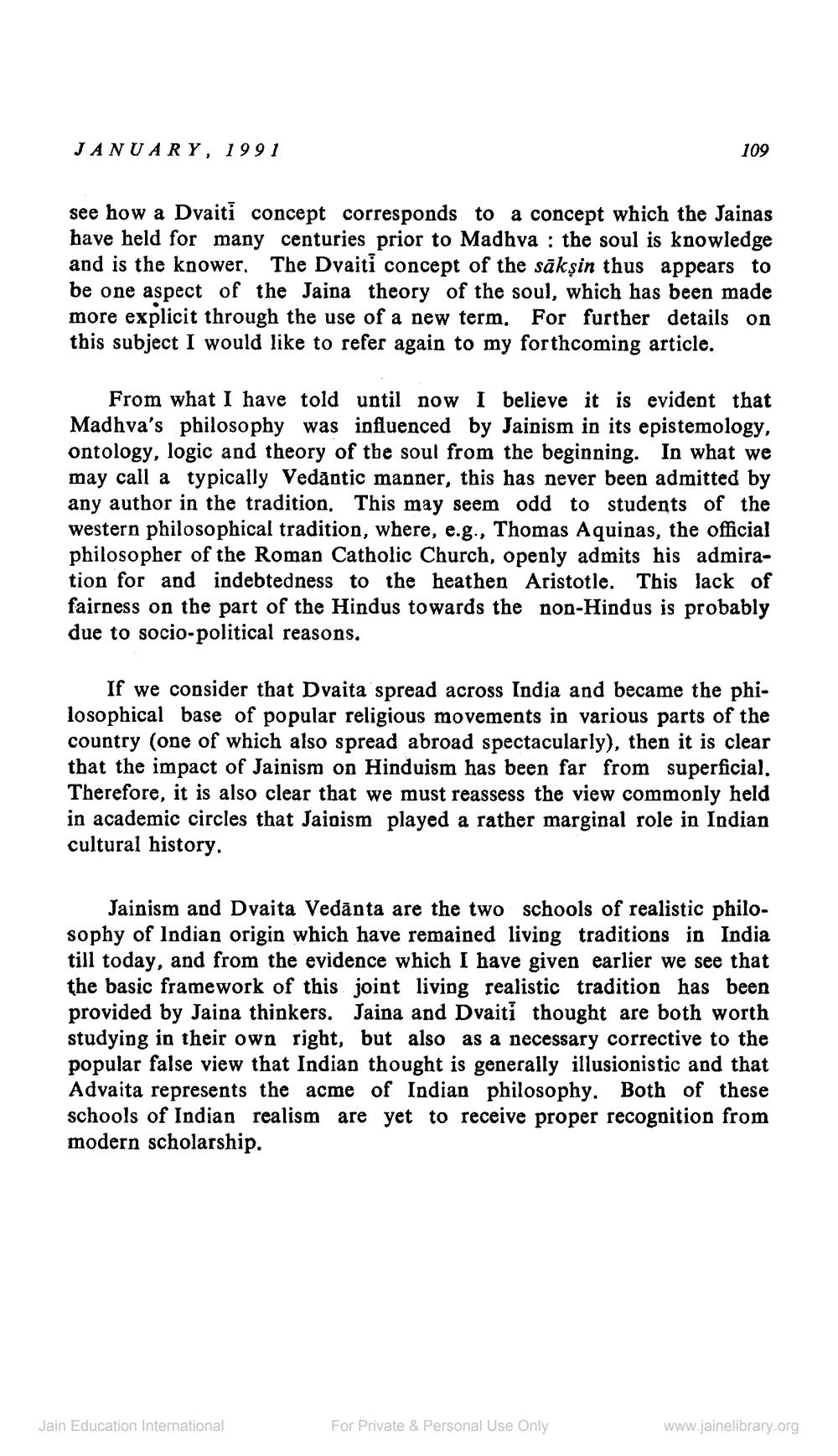________________
JANUARY, 1991
109
see how a Dvaiti concept corresponds to a concept which the Jainas have held for many centuries prior to Madhva : the soul is knowledge and is the knower. The Dvaiti concept of the sāksin thus appears to be one aspect of the Jaina theory of the soul, which has been made more explicit through the use of a new term. For further details on this subject I would like to refer again to my forthcoming article.
From what I have told until now I believe it is evident that Madhva's philosophy was influenced by Jainism in its epistemology, ontology, logic and theory of the soul from the beginning. In what we may call a typically Vedāntic manner, this has never been admitted by any author in the tradition. This may seem odd to students of the western philosophical tradition, where, e.g., Thomas Aquinas, the official philosopher of the Roman Catholic Church, openly admits his admiration for and indebtedness to the heathen Aristotle. This lack of fairness on the part of the Hindus towards the non-Hindus is probably due to socio-political reasons.
If we consider that Dvaita spread across India and became the philosophical base of popular religious movements in various parts of the country (one of which also spread abroad spectacularly), then it is clear that the impact of Jainism on Hinduism has been far from superficial. Therefore, it is also clear that we must reassess the view commonly held in academic circles that Jainism played a rather marginal role in Indian cultural history.
Jainism and Dvaita Vedānta are the two schools of realistic philosophy of Indian origin which have remained living traditions in India till today, and from the evidence which I have given earlier we see that the basic framework of this joint living realistic tradition has been provided by Jaina thinkers. Jaina and Dvaiti thought are both worth studying in their own right, but also as a necessary corrective to the popular false view that Indian thought is generally illusionistic and that Advaita represents the acme of Indian philosophy. Both of these schools of Indian realism are yet to receive proper recognition from modern scholarship.
Jain Education International
For Private & Personal Use Only
www.jainelibrary.org




